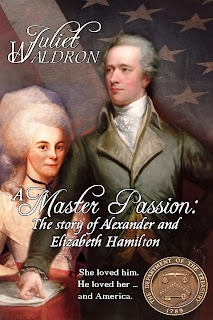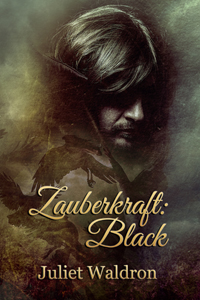Around this time of year in Europe, long ago, the ordinary folks had already celebrated Harvest Home, bringing in grain from the fields and hogs from the forests. The barley, oats and wheat, gathered in, was measured. Now the community knew, more or less, how hungry the coming winter would or would not be. The light was disappearing day by day, the sun setting earlier and rising later, as the northern hemisphere angles away from that ancient God--or in Germanic countries, Goddess--the Sun.
This was a time to celebrate the beginning of a new year, and this season, one of the four most important of the solar year was observed with three days of ritual, full of deep spiritual meaning. We can tell how important this observance was because the Catholic Church, after that entity had firmly established its rule, took over the ancient celebration and gave each of those three autumnal days a new, canonical designation.
Halloween is a contraction of "All Hallows Eve," that falls on the evening before what is today called "All Saints Day." Originally, on that night, all the fires in the village would be extinguished. Everyone would huddle in the dark and increasing chill of their homes. On this night, only the priestly caste dared to be out and about, because, now without firelight, evil beings could be stalking through the villages, the fields and the forests on every side. Offerings, sometimes a bowl of milk, sometimes cakes, were left outside each door in hopes of appeasing the endless hunger of these dreadful creatures.
Today, all that is left of that practice are our children, costumed and masked, dressed as supernatural beings, who knock on our doors and beg for candy.
On the morning after, as the sun rose, each housewife would sweep and gather the ashes of the central hearth and dispose of these into the purifying safety of running water. At the same time, religious leaders, male and female, would rekindle each village's sacred fire. Once this was established, flaming boughs would be carried house to house, to rekindle each and every village hearth. Afterward, everyone set to work to make a communal feast. This day, eventually renamed by the Church "All Saints Day," was then rededicated to Christian Saints. In pagan times, however, this day was the first of the New Year and pagan gods and goddesses were the ones celebrated.
The third day of the feast, later named "All Souls," was originally in honor of the ancestors. Ancestor worship still exists today here and there on planet earth, but 2,000 years ago, this was a universal feature of most religions. Bones of last year's deceased, previously de-fleshed in various ways, and subjected to cremation and temporary housing in pots, might be brought out of dwellings to be reverently interred within the local barrow or stone burial chamber.
In some places/times, when barrows were the fashion, the great stones which blocked the openings would be laboriously moved so that the year's dead would be carried within, to rest with those ancestors who had gone before. The rituals of deposition for cremains varied from place to place and age to age. Cremains urns have also been discovered beneath standing stones. Others carpet the ditches which enclose stone or earthen monuments, or the ditches that still exist, still guarding a long perished henge made of wood.
In the Norse tradition, this period, after the full moon of the Autumn Equinox, was celebrated as the Disirblot, a feast in honor of the ancestral female spirits who guarded the family line and also in honor of Freya Vanadis, their chief. The celebration was local and domestic, and was also a harvest home. The pig, often portrayed as the mount of Freya, provided the pork for the feast.
Of course, there are as many traditions as there are countries for this time of year. Divali, the feast of lights, is celebrated in India by closing the books of the last financial year and opening those of the next. Laxshmi, goddess of good fortune and wealth, asked for Her aid in business. What is most visible, however, are the oil lamps that line the streets and float upon the rivers. Many other divinities are honored during this feast in the vast and populous country. In some regions it is great Kali with her necklace of demon heads
(She who embodies primeval energy/change and creative destruction) that is honored, in others it is Durga, demon slayer, seated upon her tiger. The Warrior God Rama also gets into the Divali celebration, as his devotees know that in the times long ago, this was the season of his coronation.
~Juliet Waldron
























.jpg)













.jpg)











